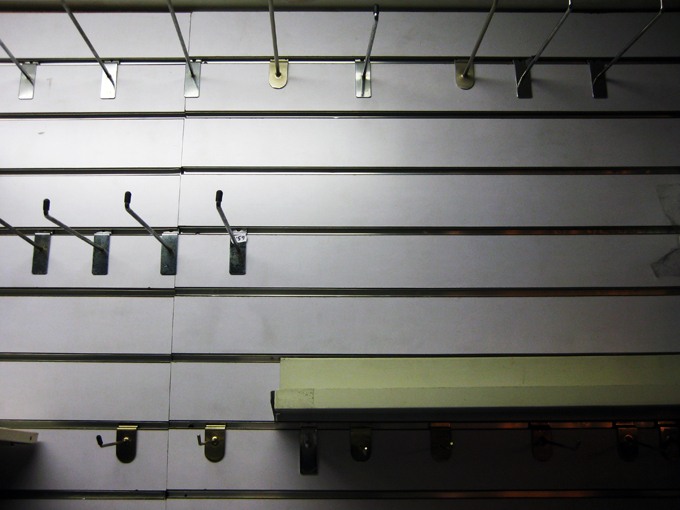 The challenges of convenience retailing cannot be overstated. In a neighbourhood saturated with Tescos and Sainsbury’s, it is hard to stay afloat. Not only do chains enjoy huge volumes of loyal shoppers, but they also have much larger profit margins than smaller shops. For example, a bottle of water may cost Tesco 20p and is sold for 53p. Instead of purchasing the water directly from the supplier – like Tesco – smaller retailers buy the same bottle at a cash-and-carry for an inflated price. At my kiosk, the same bottle is purchased for 30p and sold at 52p. Although you will find this bottle sold for £1 or even more than £1.50 (at both independents and chains) my kiosk held fast to its commitment to compete with Tesco on price. (Did this seal their fate?) This example may be slightly deceptive, as the mark-up on water is relatively high, compared to something like cigarettes, for example, which are marked up only 6%. In any case, any kiosk relies on volumes, something that this one did not enjoy.
The challenges of convenience retailing cannot be overstated. In a neighbourhood saturated with Tescos and Sainsbury’s, it is hard to stay afloat. Not only do chains enjoy huge volumes of loyal shoppers, but they also have much larger profit margins than smaller shops. For example, a bottle of water may cost Tesco 20p and is sold for 53p. Instead of purchasing the water directly from the supplier – like Tesco – smaller retailers buy the same bottle at a cash-and-carry for an inflated price. At my kiosk, the same bottle is purchased for 30p and sold at 52p. Although you will find this bottle sold for £1 or even more than £1.50 (at both independents and chains) my kiosk held fast to its commitment to compete with Tesco on price. (Did this seal their fate?) This example may be slightly deceptive, as the mark-up on water is relatively high, compared to something like cigarettes, for example, which are marked up only 6%. In any case, any kiosk relies on volumes, something that this one did not enjoy. Low volumes and margins mean empty registers and limited capacity to purchase new stock. The challenge of filling the shelves was a persistent ordeal over the months I spent at the shop. Without an abundance of product, attractive displays are difficult to create. In addition, if customers aren’t sure to find their Mayfair Superkings or Extra Cool Breeze every time, they will soon find other more dependable retailers for their everyday purchases.
Shelves stayed empty due in part to challenges of buying stock and also as a result of product expiry. Enjoying attractive offers at cash-and-carry shops meant that expiration dates often arrived before products were purchased. Our in-kiosk offers, and strategic positioning, couldn't always clear them away. Restocking the empty shelves was often funded through the managers' other jobs. In fact, these other jobs tended to support running the kiosk. To add to the challenges, with margins so low, the managers were never able to pay themselves, and working at the kiosk meant not working at their other paying jobs.
Under the flourescent lights, we packed up the stock in Tesco carrier bags and large black bin liners – our fingers black with the dust that collected over the summer. The shop took a surprisingly short time to pack and was collapsed into a pile of plastic bags within a couple hours.
It was strange to displace items that had amassed so many stories, and so much familiarity, over the summer: the Mars bars that melted in the crawl space during the heat wave; the assorted sizes of Doublemint gum – bought by accident – which always posed a challenge for pricing and display; the Chew-its that required extra dusting in the folds at their square ends; the boxes of matches that didn't quite fit in the TicTac containers used for their display...
With any luck, the managers will sell some stock to other shops. The rest will likely be consumed at home or sent to family in Bangladesh. I also took a number of things as well at a deeply discounted rate.




No comments:
Post a Comment